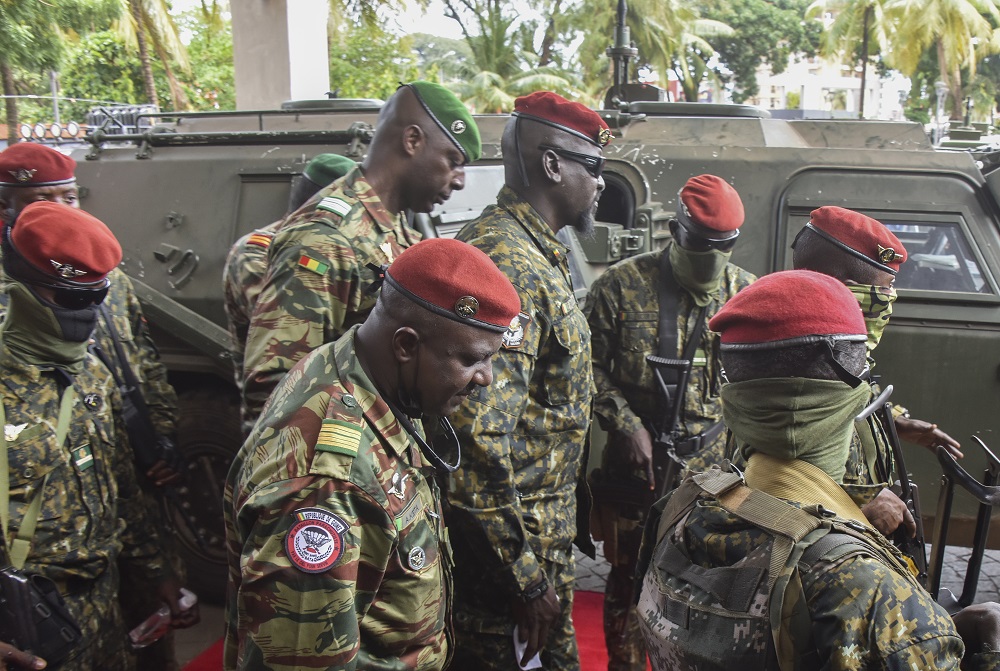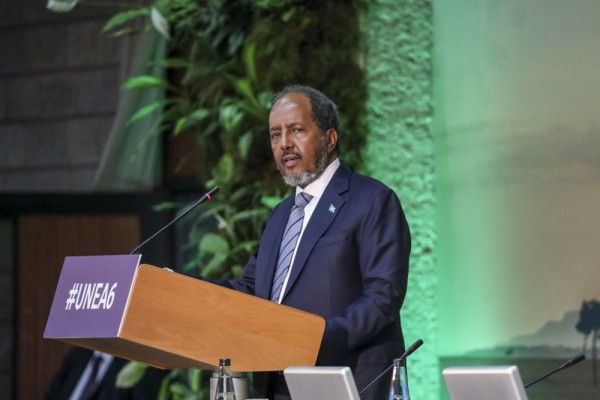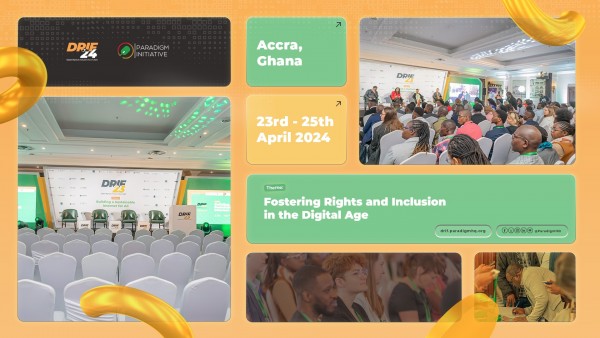Between May and August 2022, at least 14 journalists were detained or attacked in Guinea, including by security forces and public officials as well as protestors.
One year after Guinea’s September 2021 military coup, IPI reminds Guinea’s transitional government authorities that independent media and press freedom are indispensable for a democratic transition. We call on the transitional authorities to ensure the press can do its work independently and safely and that journalists are protected while carrying out their work of providing the public with news and information.
Initial promises on press freedom
Guinea’s recent past has seen political turmoil and human rights violations, including the killings of protestors under the regime of former President Alpha Conde, who was deposed in a military coup d’état on September 5, 2021that was led by the current interim president, Colonel Mamady Doumbouya.
The military coup came after President Conde forced his way to a third term through a controversial constitutional referendum. The transition regime initially seemed friendly to the press, according to local press freedom groups, which said that Doumbouya had assured them that the media could operate freely and and even invited them to continue investigations, including into corruption.
However, recent developments raise concerns over the transitional government’s respect for rights. This is broadly underscored by the recent dissolution, on August 8, 2022, of the Front National pour la Défense de la Constitution (FNDC), a coalition of political parties and civil society organizations that fought against President Conde’s efforts to secure a third term. In addition, recent months have witnessed a series of attacks on the press, including at the hands of state and public officials.
Recent series of attacks on press
On August 5, Mohamed Bangoura, a journalist and director of the news platform mosaiqueguinee.com, was summoned by the military authorities to the headquarters of military intelligence, EMGA, over the publication of an article related to the disappearance of a vehicle loaded with counterfeit products in a military barracks. However, following the intervention of the Syndicat des Professionnels de la Presse de Guinée (SPPG), a local press freedom group, the matter was referred to the media regulatory body, Haute Autorité de l’Audiovisuelle (HAC), and settled amicably, according to SPPG.
On August 4, Mamadou Hady Diallo from Djoma Kakande radio station was manhandled by military men in the northwest of the country while covering a protest of workers in the mining sector. On the same day, Mamadou Boullere Diallo from Espace TV in the capital town, Conakry, was also assaulted by security forces.
On July 28, 2022, four journalists – Abdallah Camara, Mohamed Sangare, Laafa Sow, and Algassimou Baldé – working with different privately owned media houses were assaulted by unknown individuals while covering public protests in Conakry. Some of the journalists’ work equipment was also seized by the protestors in the assault.
Also in July, during the arrest of three leaders of the banned FNDC, two other journalists, Aly Badara Camara of Espace TV and Alseny Aye Soumah of media outlet Djoma, were assaulted on July 5 and 7, 2022, respectively, by protestors in Conakry. Camara’s car was damaged while Soumah sustained injuries.
On June 15, 2022, former lawmaker Aboubacar Soumah assaulted journalist Ahmed Camara of Radio Espace during a live programme. Confronted with evidence about his denial of support for Alpha Conde’s efforts to gain a third term, the lawmaker became angry and physically assaulted the journalist. The following day, on June 16, in the locality of Dinguiraye, in the north-central part of Guinea, journalist Mamadou Sagnane was arrested and released the following day for broadcasting a communique of a public protest.
Five weeks earlier, four journalists were assaulted in the regions of Kankan and Dubreka by state actors, including local public officials and security forces. On May 24, 2022, a high-ranking military officer, Charles Kolipé Lamah, physically and verbally attacked Cheick Sekou Berthe and Ahmed Sekou Nabe, journalists working with radio Espace Kankan and Nourdine FM, while covering an operation to clear up public space in the region of Kankan in eastern Guinea. On May 17, Sayon Camara and Moustapha Diané, two journalists working with the media houses Actu21 and Web TV Sokolo in Dubreka, a town located about 50 km from Conakry, were assaulted by officers of the local district and the prefect of the locality. The duo was prevented from covering reporting on a similar clearing operation in the town.
The series of recent violations has led press freedom watchdogs in the country to express concern over the press freedom situation in the country.
“If initially the transition authorities indicated that they would respect and uphold press freedom and allow journalists and the media to work independently, recent press freedom violations in Guinea suggest otherwise”, Sekou Jamal Pendessa, secretary general of Syndicate of the Press Professional of Guinea (SPPG), told IPI.
IPI calls on transitional authorities to protect press
IPI calls on Guinea’s transitional government to ensure the safety of journalists and take concrete action to ensure accountability for all efforts to hinder the work of the press.
“One year after the military coup, we are increasingly concerned about attacks on journalists in Guinea carrying out their democratic watchdog role.”, IPI Deputy Director Scott Griffen said. “Guinea must ensure that the press can do its job, especially during this transition phase. We condemn all efforts to hinder the media’s work and urge the transitional authorities to hold those responsible for such efforts to account.”



